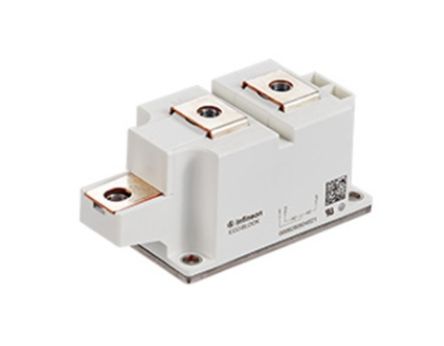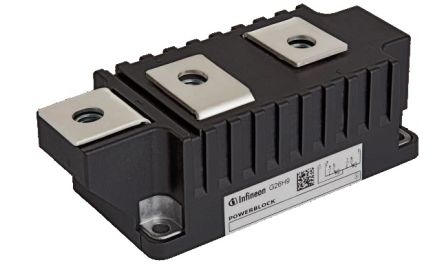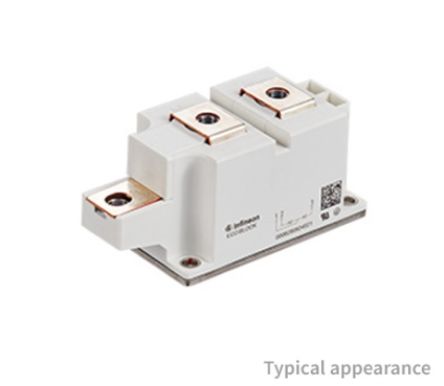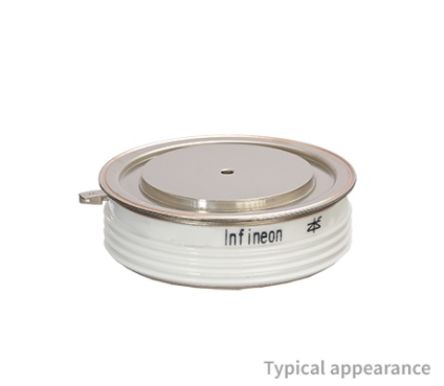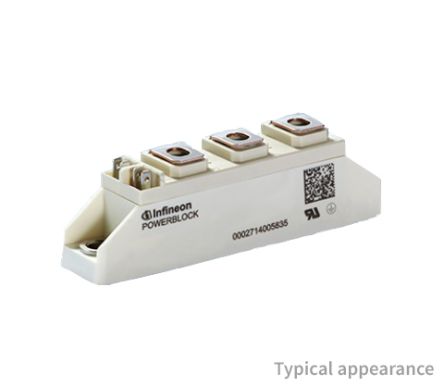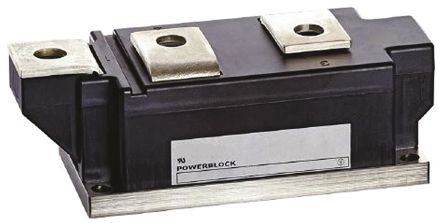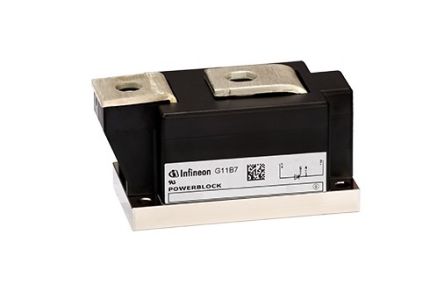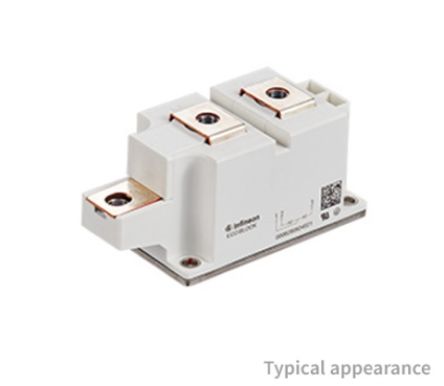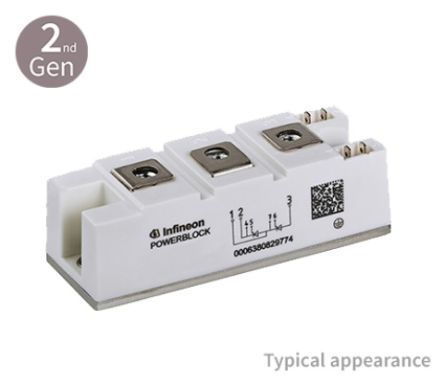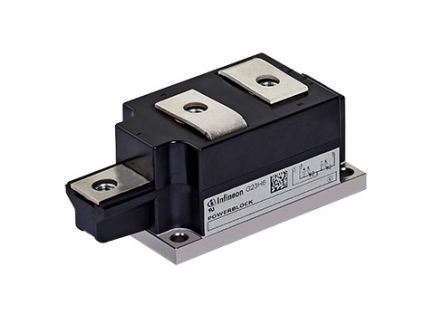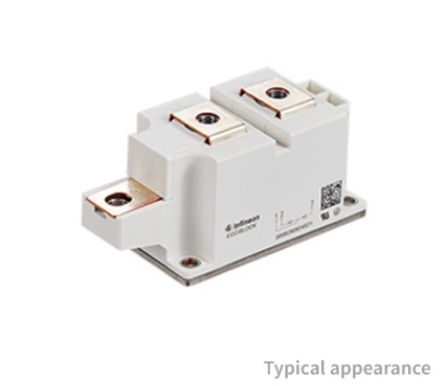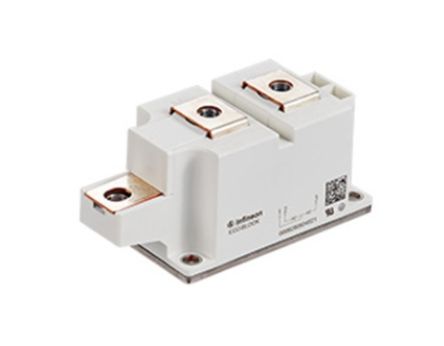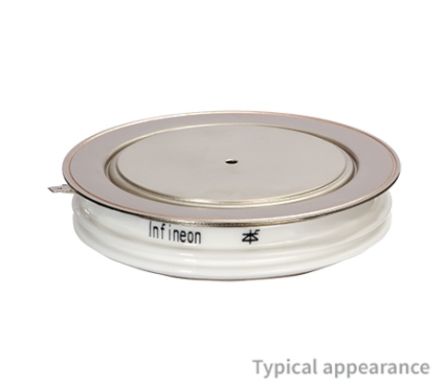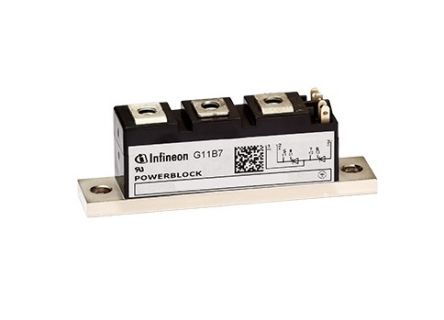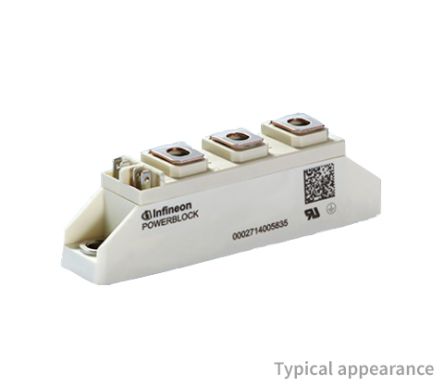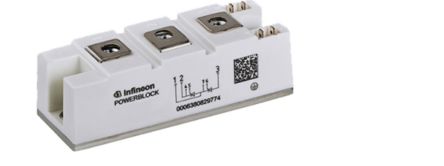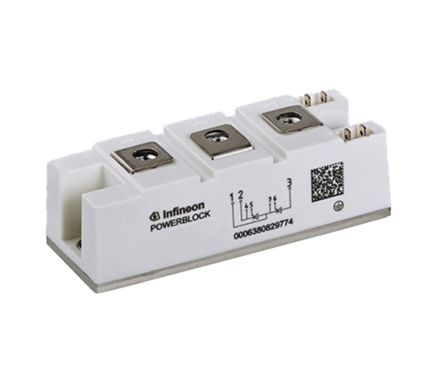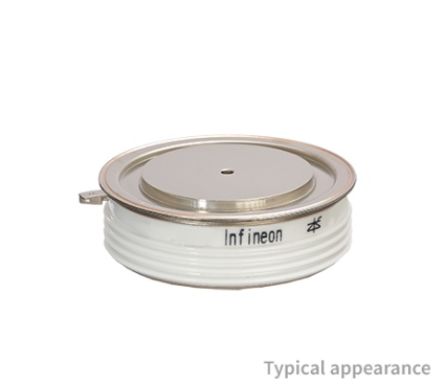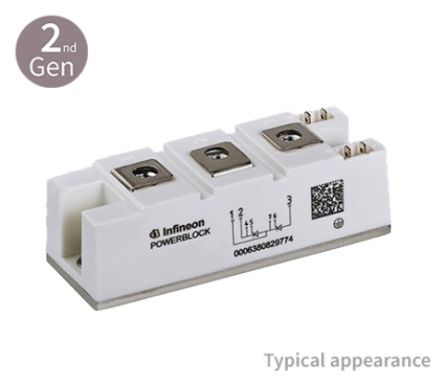- Automation & Control Gear
- Cables & Wires
- Enclosures & Server Racks
- Fuses & Circuit Breakers
- HVAC, Fans & Thermal Management
- Lighting
- Relays & Signal Conditioning
- Switches
- Batteries & Chargers
- Connectors
- Displays & Optoelectronics
- ESD Control, Cleanroom & PCB Prototyping
- Passive Components
- Power Supplies & Transformers
- Raspberry Pi, Arduino, ROCK, STEM Education & Development Tools
- Semiconductors
Thyristors Infineon
Thyristors are four-layer semiconductor devices, also known as a silicon controlled rectifier (SCR) It is like a fast static switch and is good for controlling large amounts of power, they can also control the speed of DC motors. You can learn more in our complete guide to thyristors.
How do thyristors work?
Thyristors usually consist of three electrodes: an anode (positive terminal), Cathode (negative terminal) and a gate. (You can also get thyristors with two or four leads). The gate is the main control terminal while the main current flows between the anode and cathode Thyristors are made of N-type and P-type materials. The N-type material is formed by doping an element with electrons to increase the number of negative charge-carrying electrons. The P-type material is also produced through doping, although the resulting charge-carrying electrons are positively charged. By alternating layers of P and N-type material, a semiconductor thyristor device is formed. Thyristors are used to create a latching circuit. Thyristors can be turned on using the gate. It then turns off when the voltage across the anode-cathode drops back down to zero.
Types of thyristors
- Silicon controlled rectifier (SCR) - The basic purpose of an SCR is to function as a switch that can turn on or off small or large amounts of power.
- Silicon controlled switch (SCS) - Silicon Controlled Switch (SCS) is a device similar to an SCR, but it is designed to turn off when a positive voltage/input current pulse is applied to an additional "Anode gate".
- Triac - Triac gets its name from Triode for alternating current Triacs are similar to SCRs but it conducts in both directions, (a bidirectional device). This means that it can switch AC and DC currents., Firing circuit commander modules are required for this.
- Four-layer diode - A four-layer diode has 2 pins and is similar to a voltage-sensitive switch. When the voltage between the two pins exceeds the breakdown voltage it turns ON, otherwise its OFF.
- Diac - Diac is a mix of the words diode and ac switch it is similar to a four-layer diode but it can conduct in both directions meaning it can contact both AC and DC currents.
Applications of thyristors
Thyristors are commonly found in many everyday applications such as:
- Motor speed controls
- Pressure control systems
- Light dimmers
- Liquid level regulators
